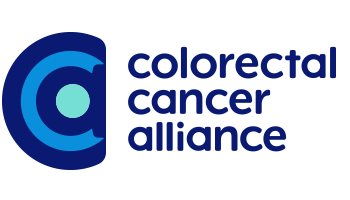- About Us
- Advertise / Support
- Editorial Board
- Contact Us
- CancerNetwork.com
- TargetedOnc.com
- OncLive.com
- OncNursingNews.com
- Terms & Conditions
- Privacy
- Do Not Sell My Information
- Washington My Health My Data
© 2025 MJH Life Sciences™ and CURE - Oncology & Cancer News for Patients & Caregivers. All rights reserved.
Colorectal Cancer Alliance Awards Two Innovative Research Projects to Find Critical Answers in Colorectal Cancer
The Colorectal Cancer Alliance (Alliance) today announced $500,000 in total funding for two colorectal cancer (CRC) studies through its Chris4Life Research Program.
The Colorectal Cancer Alliance (Alliance) today announced $500,000 in total funding for two colorectal cancer (CRC) studies through its Chris4Life Research Program.
Dana-Farber Cancer Institute’s Kimmie Ng, MD, MPH, will investigate how the microbiome is different in CRC patients diagnosed with CRC at an age younger than 50 years old, compared to older patients and healthy individuals, and then examine whether those differences lead to worse tumor growth and weakened immunity against cancer, particularly among the youngest patients in their 20s and 30s. Young-onset colorectal cancer, which is CRC occurring in people under age 50, is a critical field of study as incidence rates have increased 2% every year since 1990, and today nearly 10% of CRC patients are under 50.
Findings from Ng’s project will provide a better understanding of what an “unfavorable” microbiome is within each decade of life, and what impact that has on the body’s immune system to protect against CRC. The knowledge will then be used to discover new ways to change the microbiome to improve the immune response against CRC and develop more precise ways to screen and treat people at different stages of life.
“The underlying causes of young-onset colorectal cancer are currently unknown, but we suspect that dietary and environmental factors may be influencing the microbiome, leading to increasing rates among young individuals,” said Ng, who is the director of the Young-Onset Colorectal Cancer Center at Dana-Farber/Brigham and Women’s Cancer Center. “This grant from the Colorectal Cancer Alliance will support a large research effort to further investigate the impact of the microbiome on development of colorectal cancer in patients across the spectrum of young age, compared to older patients with colorectal cancer.”
Case Comprehensive Cancer Center’s Vinay Varadan, PhD, will investigate how multifactorial mechanisms involved in colon tumor progression in African Americans contribute to higher colon cancer burdens in that population. African Americans have the highest colorectal cancer incidence and mortality rates in the United States.
Varadan will discover and validate whether these colorectal cancer disparities are influenced, in part, by biologic factors within patient tumors. The study is designed to decode the role of tumor biology as well as socio-demographic factors that jointly contribute to racial disparities in colorectal cancer outcomes. Overall, the study will inform the development of new biomarkers and therapeutic strategies.
"African Americans are more likely to be diagnosed with and to die as a result of colon cancer than any other ethnic group in the United States. These significant racial disparities are likely due to a confluence of socio-demographic and biologic mechanisms that are decipherable only through the use of integrative multi-scale mathematical models,” said Varadan, an assistant professor at Case Western Reserve University School of Medicine who leads a Translational Systems Biology Laboratory at the Case Comprehensive Cancer Center. "This timely grant from the Colorectal Cancer Alliance will enable us to couple our unique systems biology approaches with large-scale primary tumor molecular profiles and preclinical models in order to develop interventional strategies that can improve health equity in this disease.”
The Alliance's Chris4Life Research Program was established in 2010 in honor of the late Christine Sapienza, and for all the families who are affected by colorectal cancer. Since 2016, the Alliance has funded more than $3 million in cutting-edge research.
“The Colorectal Cancer Alliance is proud to again award funding to leading researchers investigating pivotal colorectal cancer questions to accelerate our vision of a world free of this disease,” said Michael Sapienza, CEO of the Alliance. “Colorectal cancer research is vastly underfunded compared to research for other cancers. With support from our generous nation of allies, we are making important strides toward a better understanding of this disease, better treatment, and — ultimately — a cure.”
Related Content:




